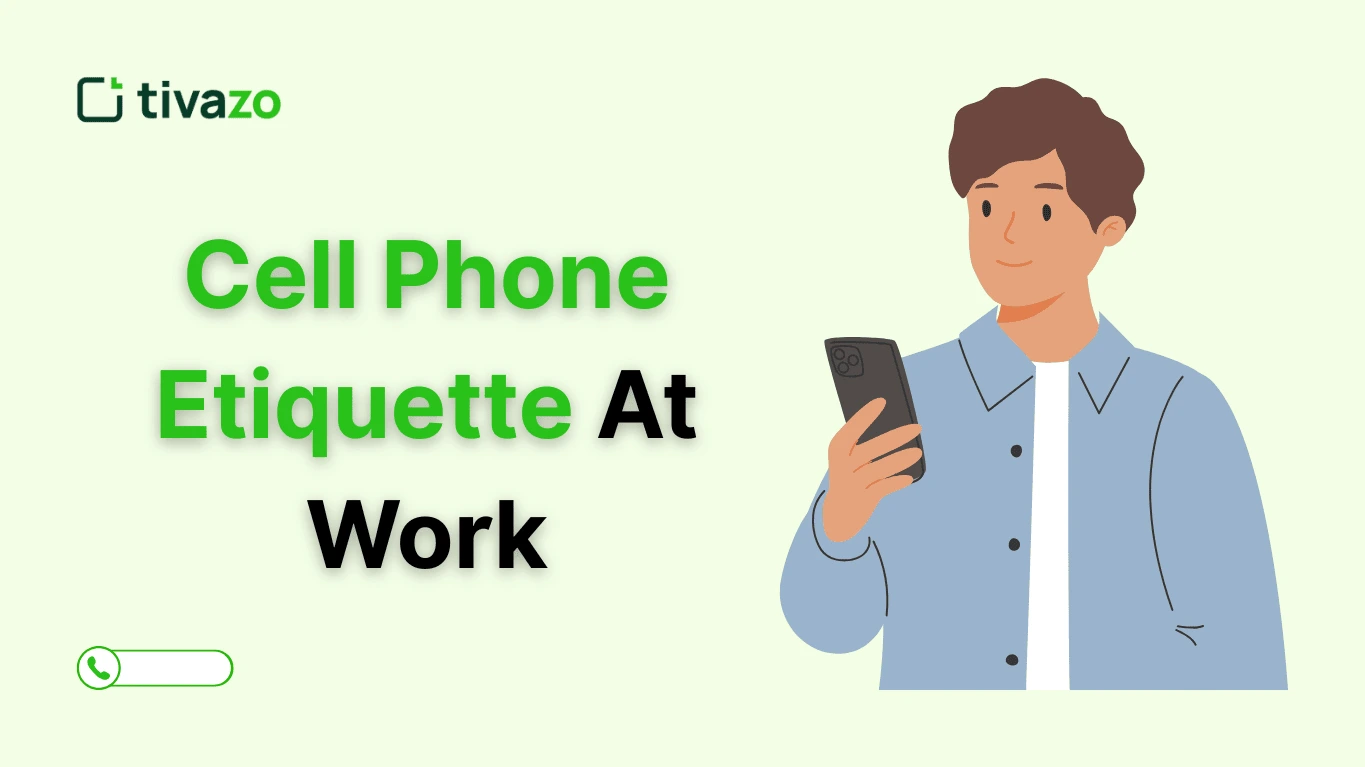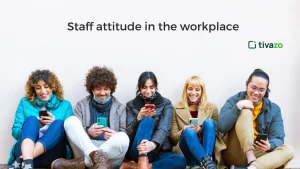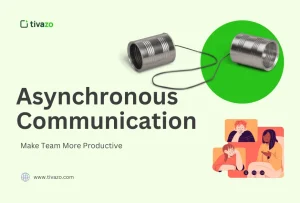What is Cell Phone Etiquette?
Cell Phone Etiquette refers to the polite and appropriate use of mobile phones in various settings, especially at work. It entails actions that limitation of distraction, space awareness, and professionalism. It involves disconnecting your cell phone, not making personal calls when you are in the shared grounds, and in addition to that, consider the timing and the way you use your cell phone. Proper cell phone etiquette will provide a focused, decent, and productive work environment for each and every person.
You May Also Like: Using Professional Team Collaboration Tools-10 best tips
What is Cell Phone Etiquette At Work?
Cell phone etiquette at work involves using your mobile device thoughtfully to maintain professionalism and respect in the workplace. This implies avoiding as much digital noise as possible, observing the phone etiquette applicable at the workplace, and, based on the policies of the company, of which one is an employee, concerning the use of the mobile phone in the office.
Some of the things one should observe when it comes to etiquette entail muting your phone, not making personal calls in places where others may hear you, and not texting when in a meeting. With proper use of cell phone etiquette, employees create an environment of respect, improve output, and improve the dynamics of the team. Feeling connected has to be done in balance with being concentrated at the workplace.
Best 9 Rules Of Cell Phone Etiquette At Work
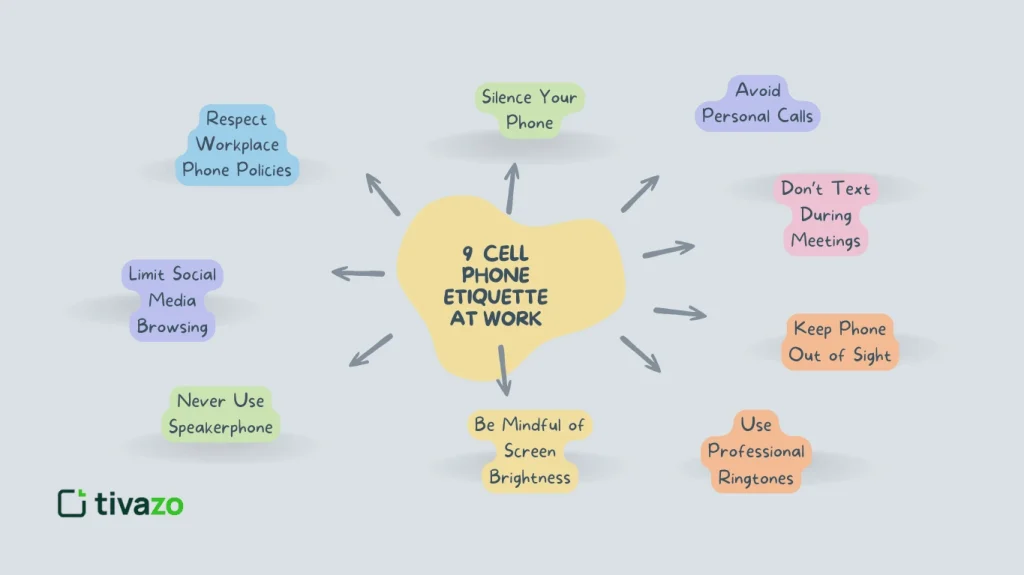
1. Silence Your Phone During Work Hours
Silence your phone. It may not seem like one of the most important rules of cell phone etiquette at work, but it is one of the most neglected rules. Udemy research has found that 36 percent of millennials and Gen Z report that their smartphones distract them at work. The loud message tones or ringing when a message is received can disturb you and your colleagues, particularly in an open office structure.
Set your phone on vibrate or silent, and when you are in the meeting room or collaborating with others, it may be a good idea to activate the functions of Do Not Disturb.
2. Avoid Personal Calls in Shared Spaces
Answering personal phones at the office desk or between common areas may disrupt the focus of other people, which is a big no-no for cell phone etiquette at work. Rather than that, go to a break room, hallway, or outside. Otherwise, when something is not high priority, leave it to go to voicemail and call it back during a break.
Keep it in mind that professional boundaries are no less valuable than productivity. Team members may be damaged due to colleagues constantly overhearing personal information or other loud noises.
3. Don’t Text During Meetings
There can be nothing so conspicuous that suggests a lack of attention than texting during meetings. Not only does it sound disrespectful to the speaker, but it also impairs your power to say something meaningful.
A survey of CareerBuilder revealed that 39 percent of employers believe that texting in a meeting is one of the productivity killers. In case you have to, take a walk outside and come back when you have finished.
4. Keep Your Phone Out of Sight
Such phones can be distracting. Researches indicate that having a phone on a desk can lower cognitive ability even without answering it.
Store the phone in a drawer, bag or pocket at work so that you can concentrate and be courteous. Something that is out of SC is out of mind.
5. Use Professional Ringtones and Wallpapers
Your professional reputation may suffer in a second because of a loud TikTok audio or an embarrassing song as a ringtone. In the same manner, your phone background may be viewed when you are giving demonstrations or working as a team.
Use non-judgmental, non-conspicuous ringtones as well as suitable wallpapers that demonstrate professionalism. It gives a message that you will not take it lightly.
You May Also Like: Proven 10 Qualities of a Good Employee
6. Be Mindful of Screen Brightness
It is also annoying when the direct burst of a bright phone display causes attention in the darkened conference room or when someone is making a presentation. Keep your screen lon ow light or in night mode when needed so that you do not harass people by keeping the screen bright.
There are also some smartphones that could be put in a state of the so-called presentation mode, which reduces notifications and darkens the screen for calendar events.
7. Never Use Speakerphone in Open Workspaces

Speakerphone with no headphones in common places is a big, big no-no. It also involves disturbing others and a lack of privacy between the two sides in the conversation.
Rather, apply wired or wireless earphones, or establish a place altogether with calls. Observing sound limits increases harmony overall in the office.
8. Limit Social Media Browsing During Work Hours
We understand, everyone has to take a short mental break. However, taking Instagram or TikTok scrolling during the working day will look unprofessional when taken to the extreme.
It is better to use the breaks to surf social media and not like and comment during conferences and collaboration. Other companies go to the extent of employing software to track activities on the Internet, and you do not want them to doubt your attention.
9. Respect Workplace Phone Policies
Some organizations also enforce phone policies that govern phone usages, especially where the company operates within high-security engagements or interactions with customers. Failure to observe them may result in disciplinary measures.
Remind yourself of what it says in your employee handbook, and practice the prescribed procedures. In case it is not clear, clarifying to your manager would be seen as an initiative and respect.
Bonus Tip: Set Digital Boundaries
Here’s a unique insight that most articles skip: setting digital boundaries with your team. Let your colleagues know when you’re available for urgent texts or calls and when you’re not.
This small gesture can reduce misunderstandings and build a culture of mutual respect. You can even include your “digital availability hours” in your email signature or communication platforms like Slack.
Cell Phone Etiquette Do’s And Don’ts
| Dos (What You Should Do) | Don’ts (What You Should Avoid) |
| Keep your phone on silent or vibrate during work hours. | Don’t leave your phone ringing loudly in meetings or shared spaces. |
| Take personal calls in private areas, like a conference room. | Don’t answer personal calls at your desk or in open workspaces. |
| Use headphones or earphones for calls to avoid disturbing others. | Don’t use speakerphone in open office environments. |
| Respect company policies regarding phone usage. | Don’t ignore or violate workplace phone policies. |
| Respond to urgent messages discreetly and promptly. | Don’t text or browse social media during meetings or important tasks. |
| Inform your team if you’re expecting an emergency call. | Don’t use your phone excessively or for non-work purposes during work hours. |
| Keep your phone out of sight when focusing on tasks or meetings. | Don’t check your phone constantly or show distracted behavior. |
| Use professional ringtones and appropriate wallpapers. | Don’t use loud, distracting ringtones or inappropriate phone backgrounds. |
Customizing Etiquette for Remote and Hybrid Work Settings
As the remote and hybrid working model has come into an upward trend, there is a need to recreate cell phone etiquette at work. Although it is important to keep your phone on silent and not multitask in case of a virtual meeting, it is necessary to follow these rules to be respectful and active during the meeting. In contrast to the traditional office, remote environments need a clear message concerning your availability. To avoid misunderstandings, use occupancy state indicators on such platforms as Slack or Teams.
In the case of hybrid teams, maintaining a proper balance between face-to-face and online communication activities implies considering how to use your phone at the desk and on video calls. It is important to avoid engaging in non-work usage of your phone during a meeting so as to be more professional. Also, it is beneficial to put up limits with regard to the time to attend to messages to avoid burnout and maintain high output.
Learning to remote and hybrid phone behaviors means you can keep connected without compromising focus and respect, as these two factors are important aspects of productive cell phone etiquette in the emerging culture of work.
Cell Phone Etiquette With Friends
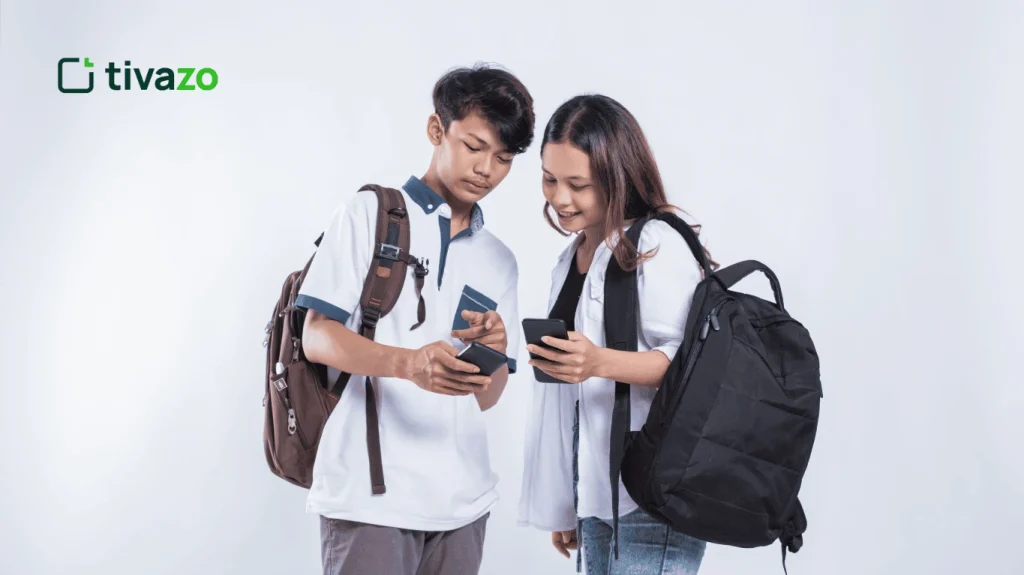
Working on cell phone etiquette at work revolves around the concept of becoming a professional; knowing how you need to handle your phone when dealing with friends is also vital. Good social phone practices ensure a good relationship and the quality of respect when face-to-face. Using your phone continuously or texting during a hangout might make the other person feel endangered and neglected, thus disrupting the conversation.
Factors that count as having respectful phone use with friends are leaving your phone on silent or vibrating mode, avoiding scrolling when not necessary, and fully committing when you have time to meet. It is also mindfulness communication, like taking photos or sharing personal messages on social media, to be done with the permission of the other party. Finding the right balance between connectivity and presence will help to enhance the connections between people and to have fun moments without distractions with loved ones.
Cell Phone Etiquette For Students
Cell phone etiquette at work is beneficial to students as well as when they are getting ready to face a future professional setting. Good phone behavior by students includes responsible use of mobile devices during times in the classroom so as to cause minimal distractions and to appreciate the teachings of the instructors and peers. Texting during class, frequent use of social websites, or receiving phone calls distracts learning, not only the user but all people in the surroundings.
Students are expected to put their phones on silent mode and not use them during lectures and only use the gadgets to get educational purposes with permission. Having an experience of respectful phone usage is a way of developing digital responsibility, which is relevant skills that are extended into workplaces. These habits at an early stage will allow students to have the means to balance connectivity with focus and professionalism at home, in school, and anywhere.
Conclusion
Knowing how to use your phone professionally is just as important as knowing your job. Practicing proper cell phone etiquette at work helps you:
- Stay focused and productive
- Maintain a respectful workplace culture
- Project a polished and professional image
As workplaces evolve, these cell phone etiquette rules help set the standard for digital professionalism. The best part? They’re easy to implement and make a big difference in how you’re perceived by your team and leadership.
What is telephone etiquette in the workplace?
It’s the practice of speaking clearly, answering calls professionally, avoiding interruptions, and respecting others' time and space.
How do I tell my employees to stop using cell phones at work?
Set clear phone usage guidelines, explain the impact on productivity, and encourage respectful, limited use during breaks or emergencies.
How to answer your cell phone professionally?
Greet with your name, speak clearly and politely, avoid slang, and keep the conversation brief and to the point.
